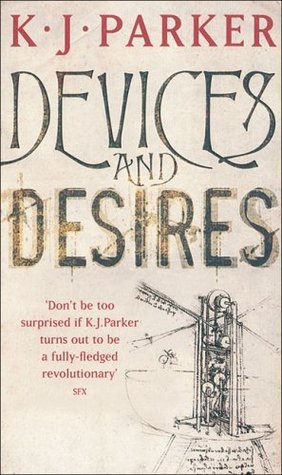What do you think?
Rate this book


720 pages, Mass Market Paperback
First published April 7, 2005
Basically, it’s a love story; which is why tens of thousands die, cities are torched, nations overthrown and everybody betrays everybody else at least once. It’s also a story about a very ordinary man who’s forced, through no real fault of his own, to do extraordinary things in order to achieve a very simple, everyday objective. Furthermore, it’s an exploration of the nature of manufacture, artifice and fabrication – the things we make, the reasons we make them, the ambivalence of everything we create, and the consequences of what we make on other people. Ambitious, or what?
He had to have it; and if it meant the end of the world, that wasn't his problem.